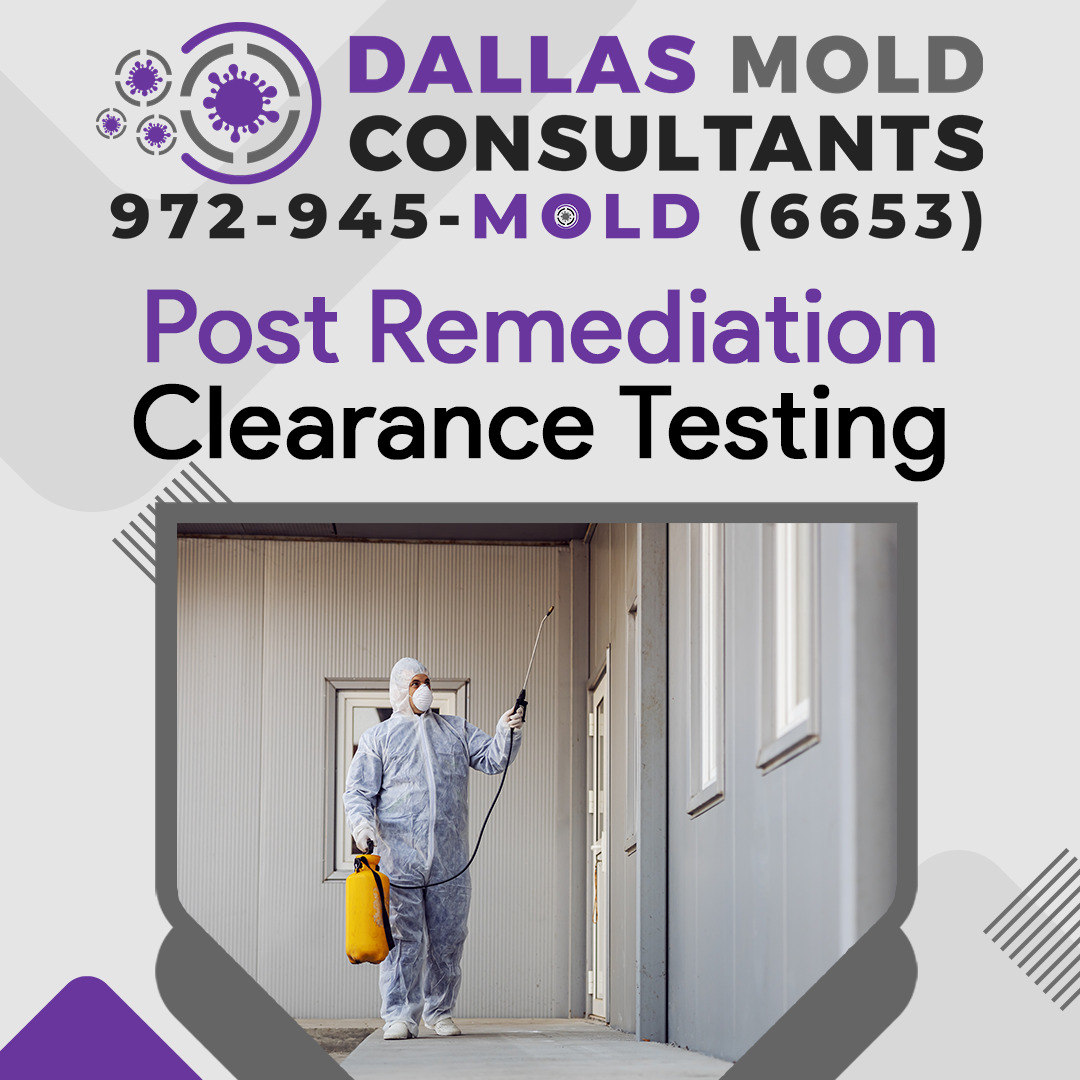The Dangers of Skipping Over Post-Remediation Mold Testing
As an opportunistic fungus, mold can grow almost anywhere, provided it has warmth and moisture. According to the Mayo Clinic, mold in the home can exacerbate allergies and asthma, and some species can cause mold toxicity.
 It’s challenging to detect and combat mold growth, which is why remediation is so costly and time-consuming, and why post-remediation testing is so important. Even after initial cleanup, some companies may miss spores in the air ducts, opening the door to new infestations.
It’s challenging to detect and combat mold growth, which is why remediation is so costly and time-consuming, and why post-remediation testing is so important. Even after initial cleanup, some companies may miss spores in the air ducts, opening the door to new infestations.Below, Dallas Mold Consultants explains how a post-remediation mold inspection will identify areas that still need work or confirm successful remediation.
What is the Post-Remediation Mold Testing Process?
After mold cleanup, you want to be sure that all traces of the harmful fungus were removed. Spores can stay alive in walls, floors, vents, and other dark places.
Post-remediation testing ensures that all mold has been removed from your property. During the process, inspectors will conduct these three steps:
- Visual observation
- Moisture measurements
- Air sampling
Visual Observations
Mold is no match for a well-trained environmental hygienist. Even if you don’t notice any signs of growth, these experts can detect small mold colonies through a detailed visual examination.
During this step, the professional mold testing company will:
- Find areas of water damage: Waterlogged walls will be soft to the touch, and surfaces may have stains.
- Detect visual evidence of mold growth: Colonies often appear as dark spots but might be in hard to reach areas.
- Evaluate the room for any damp odors that may indicate insufficient mold remediation: Some mold cleanup companies will remove apparent mold colonies but miss sections that allow the fungus to re-emerge.
The lack of visual evidence of mold is a good sign during the post-remediation assessment, but it’s not enough for the building to get a pass.
Moisture Measurements
Excess moisture is a requirement for fungal growth, which is why it is so common after flood damage.
During the mold test, an industrial hygienist will use infrared technology and moisture meters to find high humidity areas. Typically, high moisture indicates a leak or standing water. If you can track the source of the water, you can identify the cause of the mold and eliminate existing colonies.
Air Samples
While mold has a distinct smell, it can go unnoticed to the untrained nose. This is especially dangerous since mold spores are known to irritate the eyes and lungs and cause respiratory problems and allergies.
After mold remediation, an air quality test will help identify remaining areas with excess spore counts. The air quality specialist will take samples from various spots in the building to identify even the smallest trace of mold.
In many cases, most areas will pass an air sample test, but one or two rooms may fail. The hygienist will also take outdoor air samples to ensure that the indoor air test results reflect mold growth in the home and not ambient spore counts.
The Final Mold Remediation Report
It’s vital to use the same professional testing services for the initial and post-remediation tests. Mold testing companies use various methods to test for mold, and switching methods may produce different results.
Once the company completes the mold assessment, they will provide you with a clear report detailing the post-remediation testing results. Ideally, the property should be mold-free, but if it isn’t, the company will outline the plans for additional mold remediation.
About Dallas Mold Consultants
Dallas Mold Consultants provides accurate mold testing services, and the team is always available to offer advice. Their employees have seen the devastating consequences of mold and stand ready to help with immediate remediation.
Contact information
10440 N Central Expressway,
Suite 800 Dallas, TX 75231
(972) 945-MOLD (6653)
office@dallasmoldconsultants.com
Distribution Links +
- ktvn.com
- wdfxfox34.com
- wicz.com
- fox21delmarva.com
- wboc.com
- snntv.com
- rfdtv.com
- wfmj.com
- htv10.tv
- central.newschannelnebraska.com
- metro.newschannelnebraska.com
- southeast.newschannelnebraska.com
- midplains.newschannelnebraska.com
- northeast.newschannelnebraska.com
- plattevalley.newschannelnebraska.com
- panhandle.newschannelnebraska.com
- rivercountry.newschannelnebraska.com
- wrde.com
- wpgxfox28.com
- lifestyle.mykmlk.com
- wtnzfox43.com
- lifestyle.3wzfm.com



